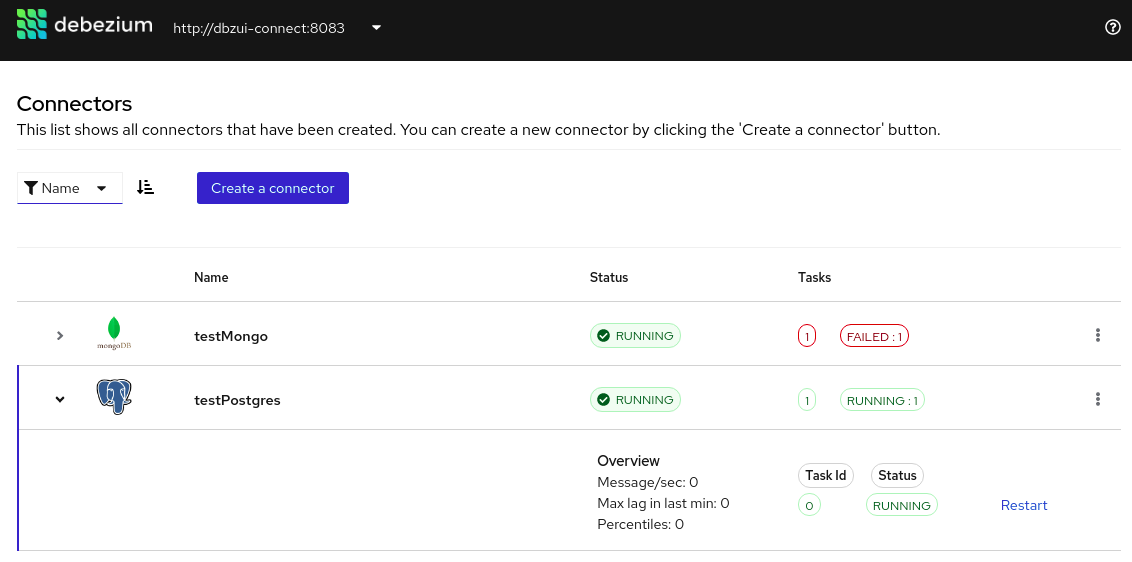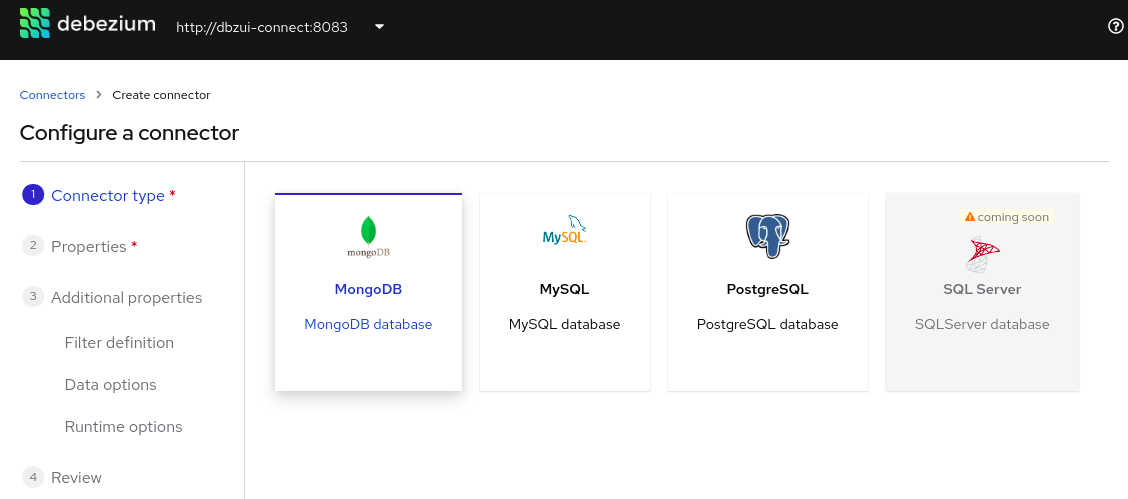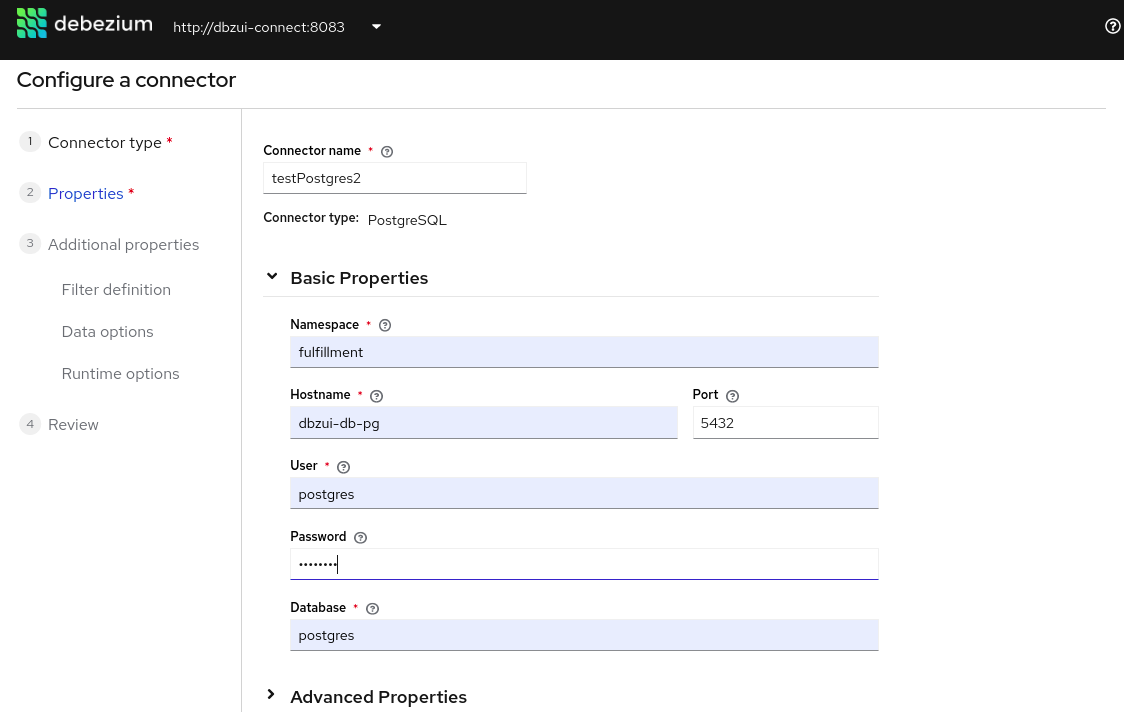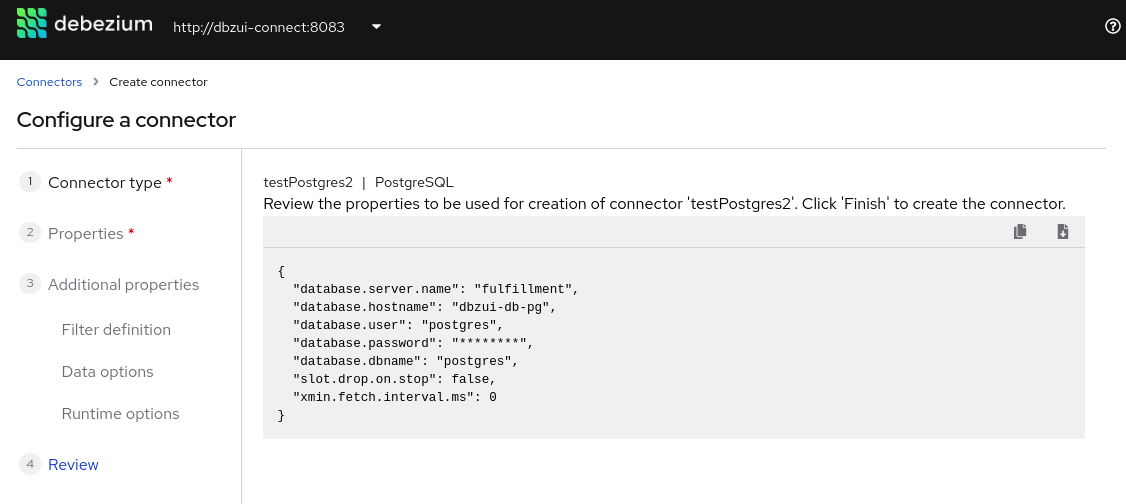Debezium Docker
Stream changes from your database.
Debezium is an open source distributed platform for change data capture. Start it up, point it at your databases, and your apps can start responding to all of the inserts, updates, and deletes that other apps commit to your databases. Debezium is durable and fast, so your apps can respond quickly and never miss an event, even when things go wrong.
Starting the services
Starting Zookeeper
docker run -d -it --name zookeeper -p 2181:2181 -p 2888:2888 -p 3888:3888 debezium/zookeeper:1.8.0.Final
Starting Kafka
docker run -d -it --name kafka -p 9092:9092 --link zookeeper:zookeeper debezium/kafka:1.8.0.Final
Starting a MySQL database
docker run -it --rm --name mysql -p 3306:3306 -e MYSQL_ROOT_PASSWORD=debezium -e MYSQL_USER=mysqluser -e MYSQL_PASSWORD=mysqlpw debezium/example-mysql:1.8
Starting Kafka Connect
docker run -d -it --name connect -p 8083:8083 -e GROUP_ID=1 -e CONFIG_STORAGE_TOPIC=my-connect-configs -e OFFSET_STORAGE_TOPIC=my-connect-offsets -e ADVERTISED_HOST_NAME=$(echo $DOCKER_HOST | cut -f3 -d'/' | cut -f1 -d':') --link zookeeper:zookeeper --link kafka:kafka debezium/connect:1.8.0.Final
Starting Debezium UI
docker run -d -it --rm --name debezium-ui -p 8086:8080 -e KAFKA_CONNECT_URIS=http://connectIP:8083 debezium/debezium-ui:1.8.0.Final
Deploying the MySQL connector
Registering a connector to monitor the inventory database
{
"name": "inventory-connector",
"config": {
"connector.class": "io.debezium.connector.mysql.MySqlConnector",
"tasks.max": "1",
"database.hostname": "mysql",
"database.port": "3306",
"database.user": "debezium",
"database.password": "dbz",
"database.server.id": "184054",
"database.server.name": "dbserver1",
"database.include.list": "inventory",
"database.history.kafka.bootstrap.servers": "kafka:9092",
"database.history.kafka.topic": "schema-changes.inventory"
}
}
curl -i -X POST -H "Accept:application/json" -H "Content-Type:application/json" localhost:8083/connectors/ -d '{ "name": "inventory-connector", "config": { "connector.class": "io.debezium.connector.mysql.MySqlConnector", "tasks.max": "1", "database.hostname": "mysql", "database.port": "3306", "database.user": "debezium", "database.password": "dbz", "database.server.id": "184054", "database.server.name": "dbserver1", "database.include.list": "inventory", "database.history.kafka.bootstrap.servers": "kafkaIP:9092", "database.history.kafka.topic": "dbhistory.inventory" } }'
curl -H "Accept:application/json" localhost:8083/connectors/
curl -i -X GET -H "Accept:application/json" localhost:8083/connectors/inventory-connector
Viewing change events
docker run -it --rm --name watcher --link zookeeper:zookeeper --link kafka:kafka debezium/kafka:1.8.0.Final watch-topic -a -k dbserver1.inventory.customers
Cleaning up
$ docker stop mysqlterm watcher connect mysql kafka zookeeper
Architecture

Debezium Server
Another way to deploy Debezium is using the Debezium server. The Debezium server is a configurable, ready-to-use application that streams change events from a source database to a variety of messaging infrastructures.
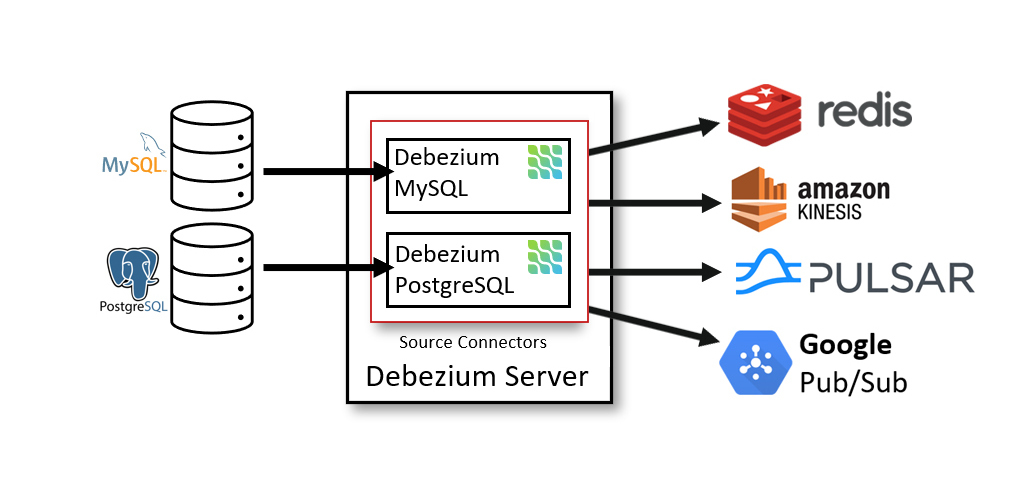
Screenshots
